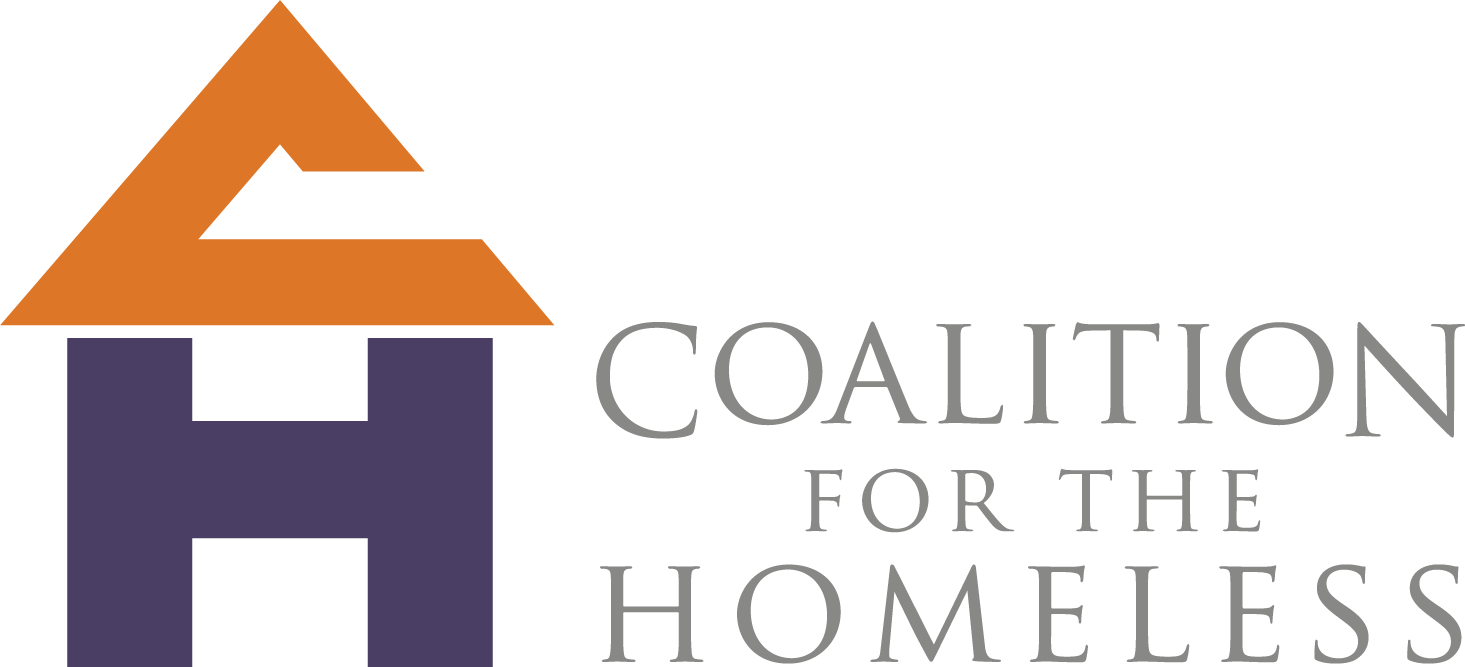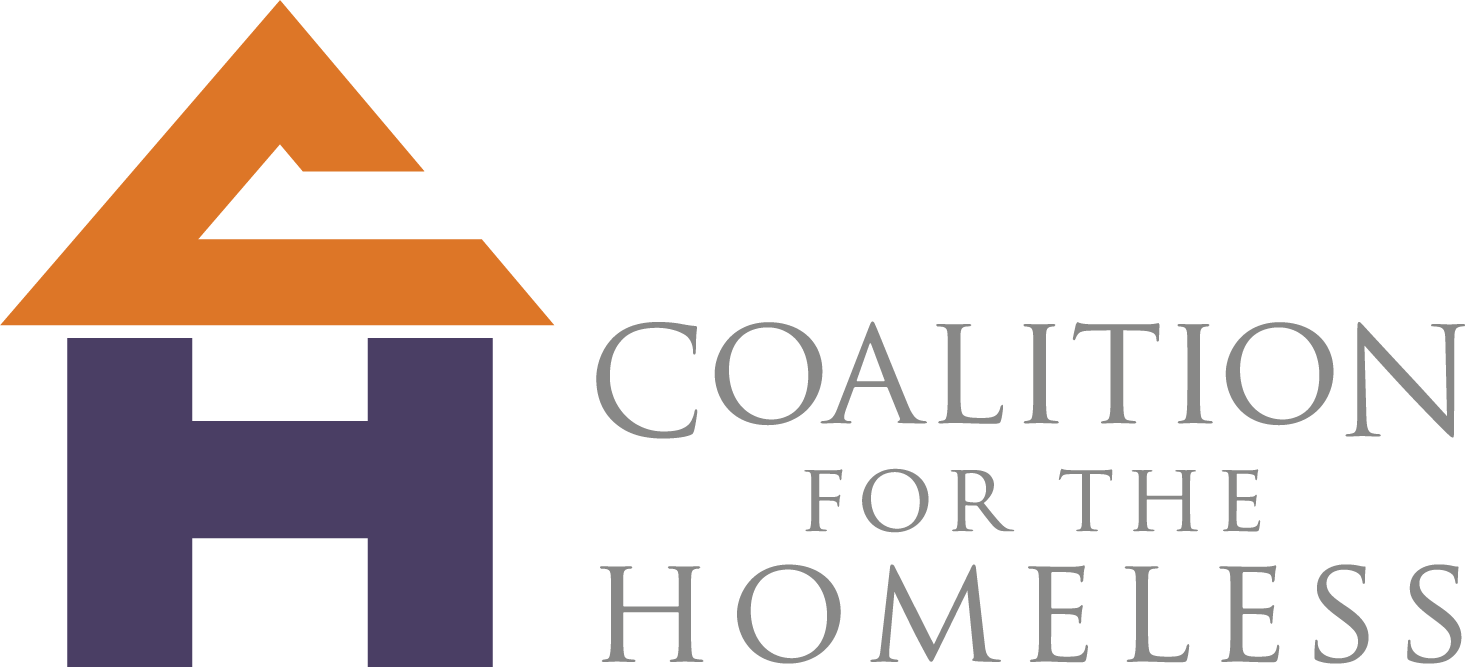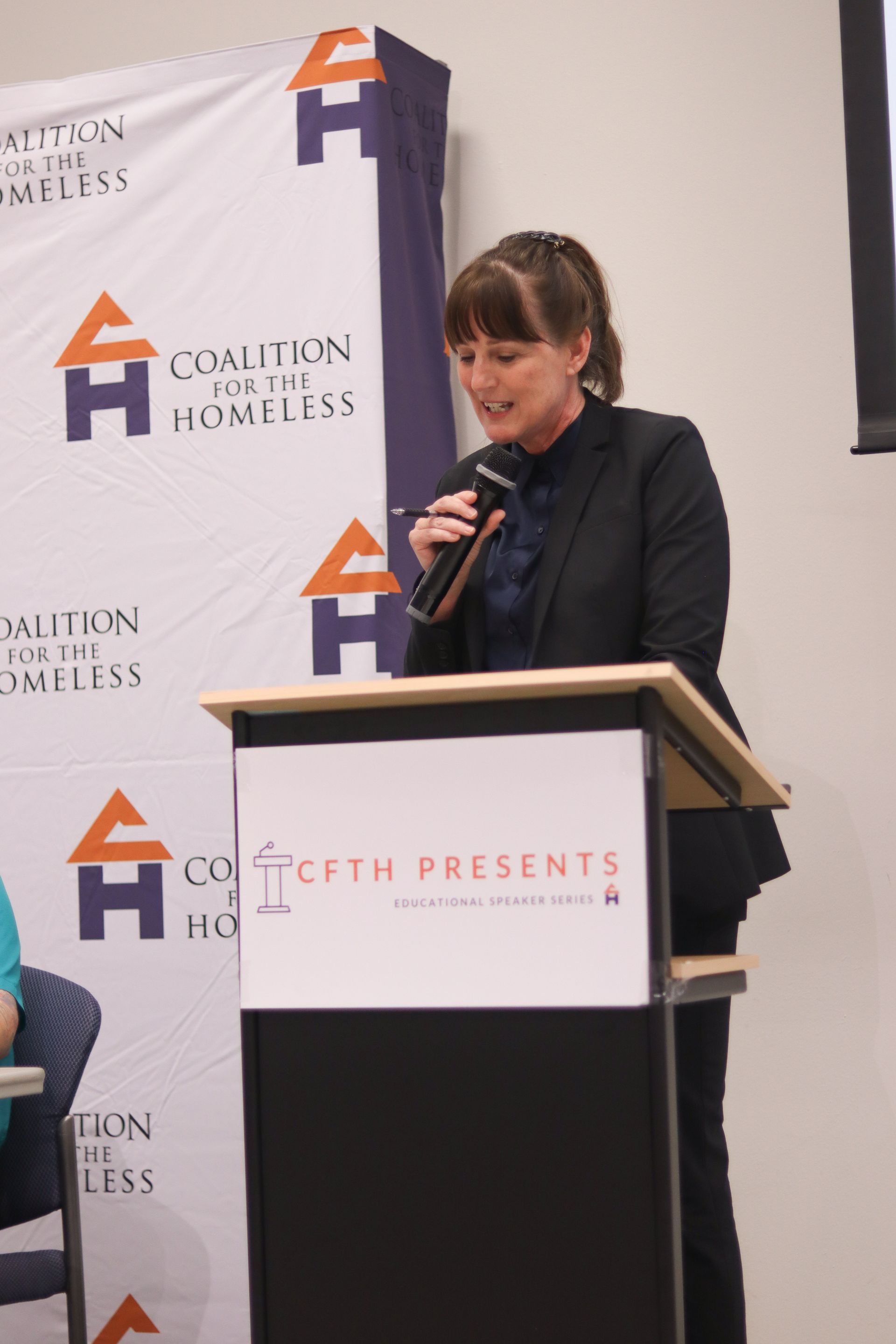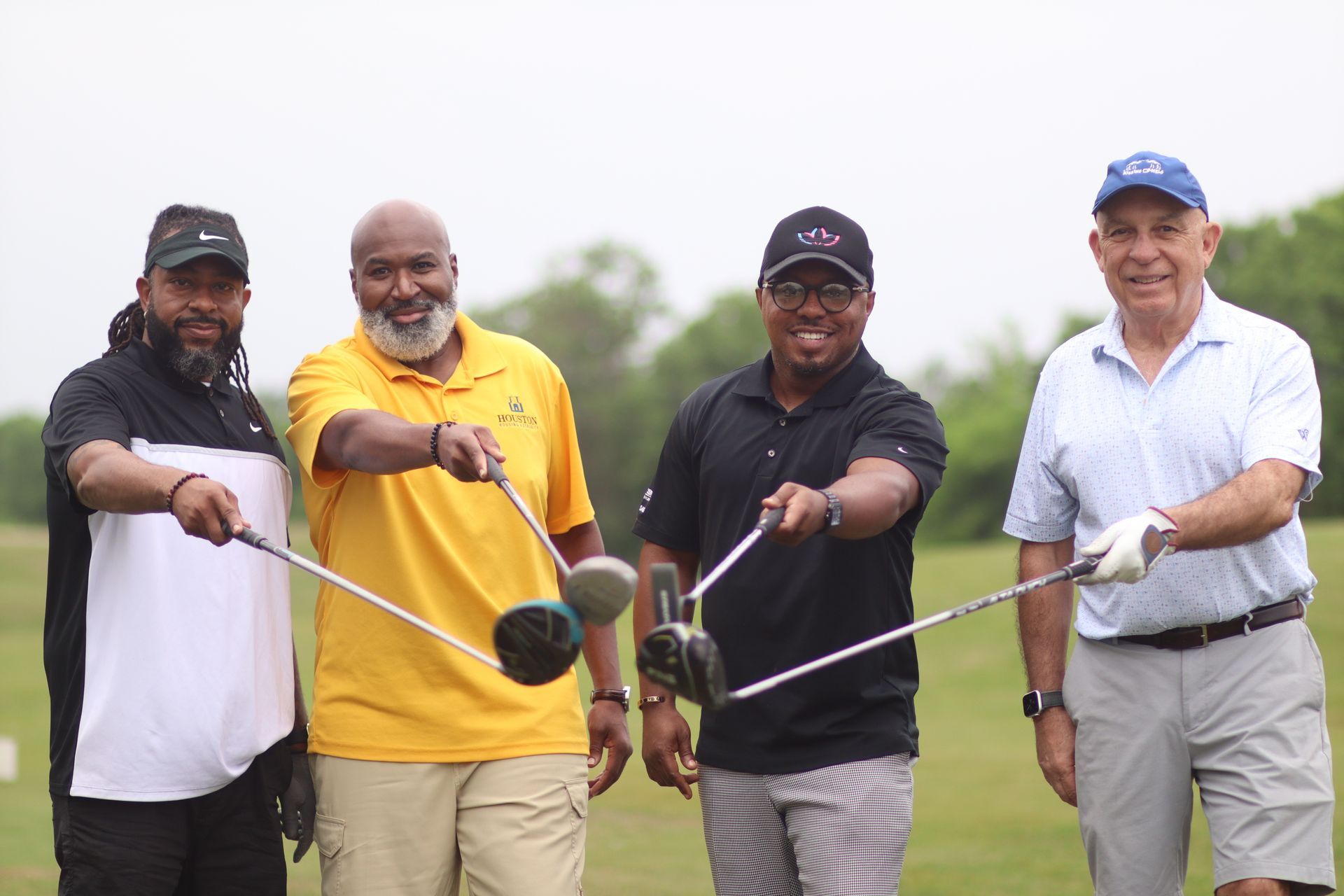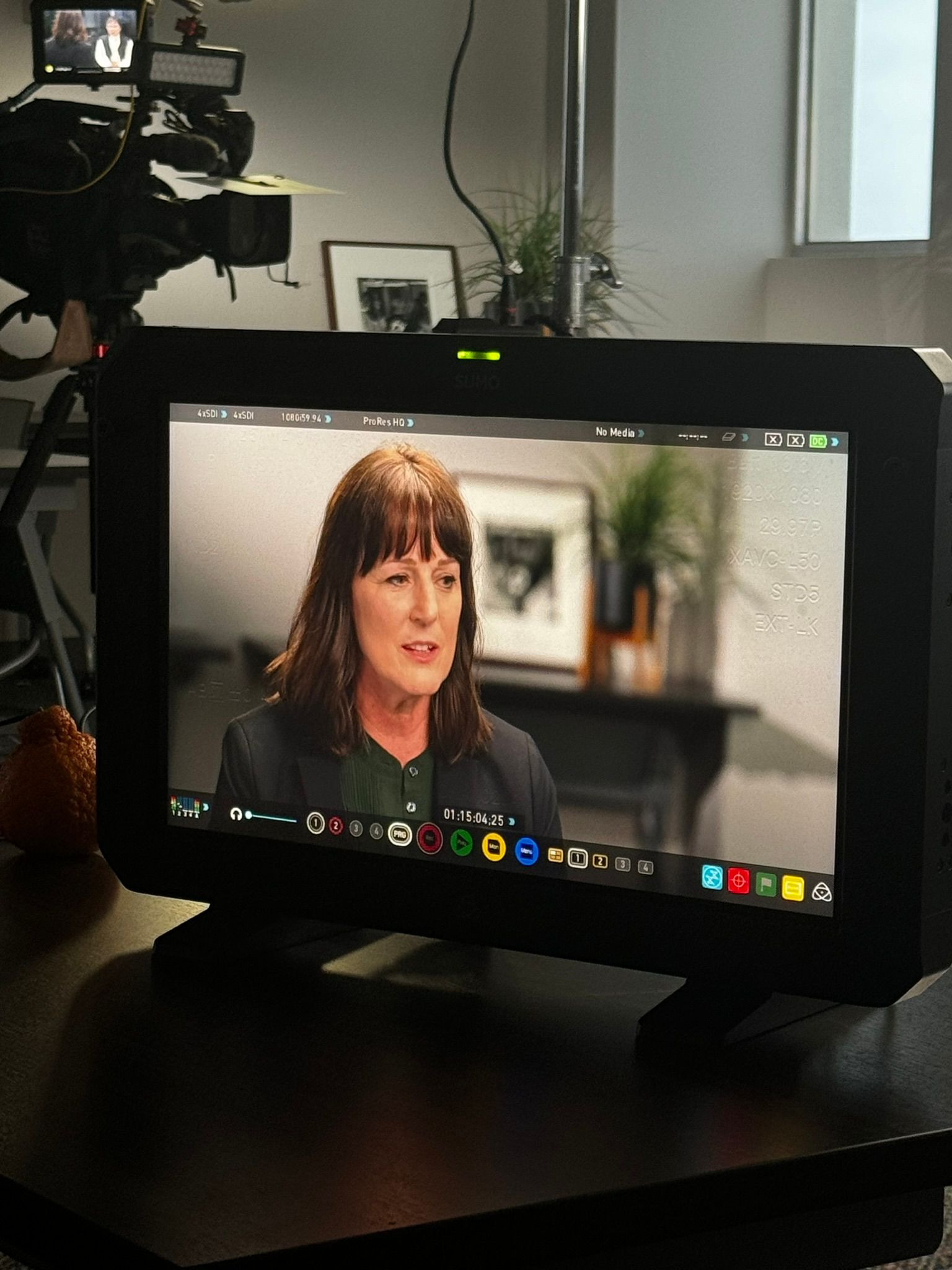Homeless Court
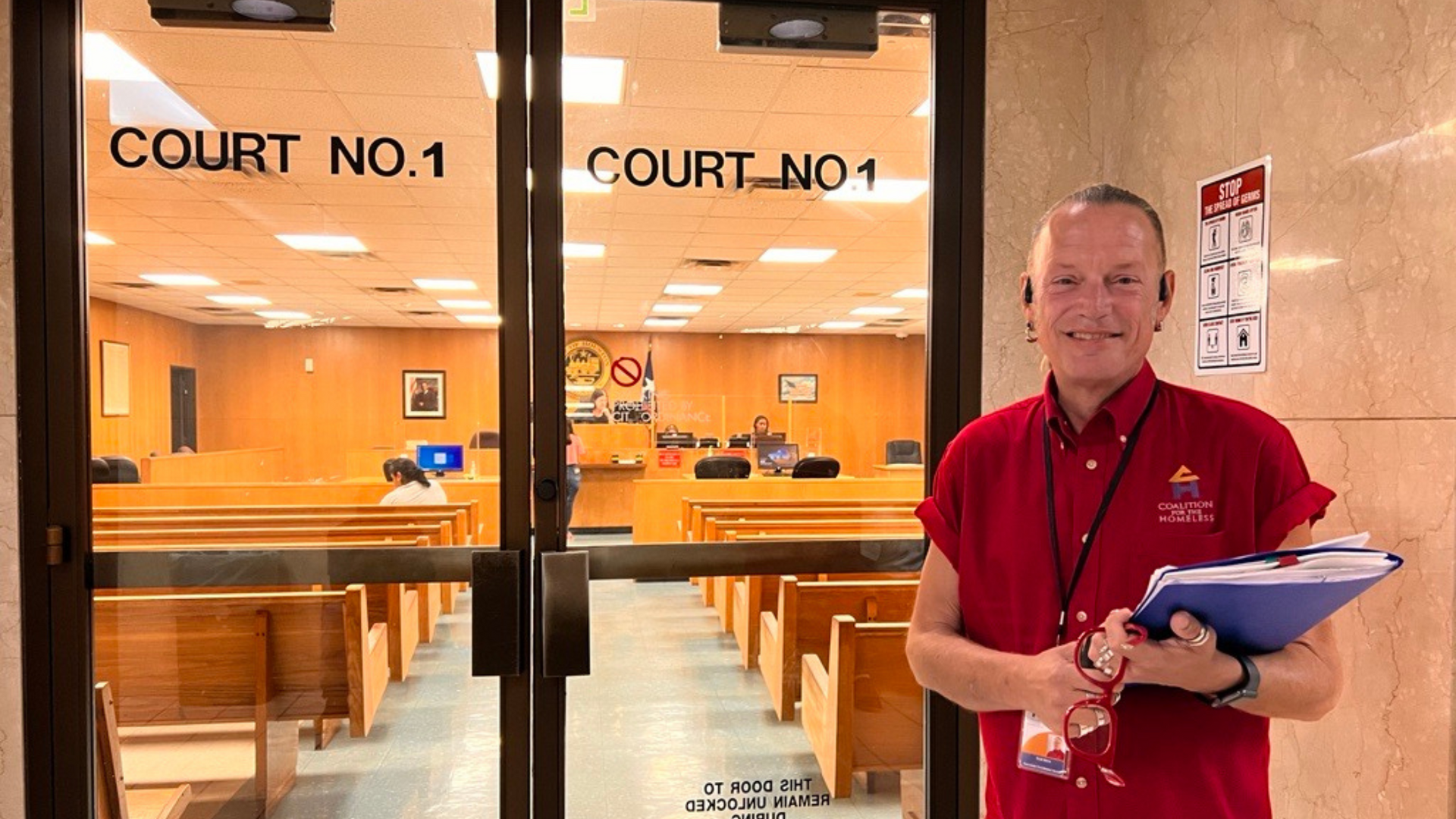
One of the main barriers to helping people to regain housing is lack of official government identification. And if someone has any outstanding warrants, they can’t get an ID.
This is one reason that “Homeless Court” within the City of Houston Municipal Court was created.
The first Homeless Court docket was heard in 2006, just a few years after Scot More started with the Coalition as an intern. Now a Senior Associate, Scot wears many hats here at the Coalition, but said, “Although Homeless Court is only about 10% of what I do, it’s so important to me, and I love it so much.”
What is Homeless Court?
Homeless Court is an innovative and compassionate approach to addressing legal challenges faced by people experiencing homelessness. It addresses class C misdemeanors, which include offenses of vagrancy, failure to pay bus fare, or sleeping in a public park. The Court provides a venue for them to have their cases heard in a more understanding and supportive environment, given that they are often also struggling with mental health challenges, substance abuse issues, lack of access to resources, and/or other barriers that have contributed to their circumstances.
Who can participate in the program?
To participate in Homeless Court, a client must be referred by a case manager, outreach team, or an emergency shelter.
How is Homeless Court different from traditional court?
Rather than imposing fines or incarceration, Homeless Court prioritizes empathy and rehabilitation over punitive measures. One unique aspect is that the client's participation in a housing program can fulfill the community service hours typically required in traditional court cases! This acknowledges the efforts people make to work towards stable housing and provides an alternative way to meet their legal obligations. As Scot explained, “It’s a way of saying we know how hard it is to work a program and get off the streets. This is a way of celebrating the clients’ hard work, saying ‘Job well done,’ and clearing legal barriers so they can move forward and be successful.”
The restorative approach of Homeless Court highlights the importance of supporting people experiencing homelessness on their journey toward stability and success. It’s a positive way to celebrate their progress and help them overcome legal barriers.
Judge Imelda Castillo is one of three judges in Homeless Court. We thank her for taking time out of her busy schedule to discuss the program and how it has impacted her. [lightly edited for length and clarity.]
Why do you participate in this program?
“As a Judge, I feel it is important to help people navigate our court system when they receive a citation. In Homeless Court, the goal is to help people resolve their past and present tickets. The homeless population often requires additional assistance from the court system. Our homeless participants have had previous experience with other outreach programs that have not always been successful. So I agreed to be one of the Judges in Homeless Court to help, encourage, congratulate, and celebrate their accomplishments.”
What has it taught you?
“Our homeless participants have shown me how their hard work has paid off. It is amazing how our participants have overcome such difficult situations and succeeded in finding housing and/or a job. It is rewarding to see the pride they feel when they overcome these obstacles.”
How long have you been involved with the program?
“I have been involved in the program for over ten years. I have worked with many caring Judges (including Judge Steve Kirkland [who founded the program]) who have mentored me in this court.”
Do you have any interesting stories to share?
“There are many interesting stories but the people who stand out to me are the women who have left an unbearable or unspeakable [domestic violence] situation. These women have learned how to handle money, care for themselves, become the primary caretaker for their children, and learn self-worth and self-respect. They are always so proud of all their hard work; it is very rewarding to see them develop independence.”
What do you want others to know about people experiencing homelessness?
“Many of the homeless don’t want to be in this situation. They are not all to be feared; most are caring individuals that just want to be understood. Some have mental illnesses or addictions that need to be addressed and treated accordingly. Many older homeless defendants have told me how frightening it is on the street, and they appreciate our help with their cases so they can get a Texas Driver’s License or State ID. Without an ID or Driver’s License housing is often out of reach. Identification is one of the biggest obstacles to getting out of homelessness.
“Working this court has really opened my eyes to how good people are. All the agencies and individuals that work with these people care so much about them; it is truly amazing.”
All Rights Reserved |
Coalition for the Homeless of Houston/Harris County

